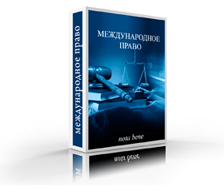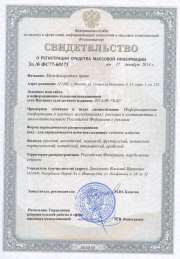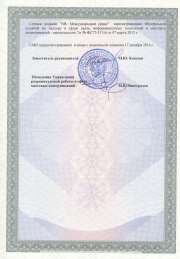|
MAIN PAGE
> Journal "International Law"
> Contents of Issue ¹ 04/2023
Contents of Issue ¹ 04/2023
|
International law and national law |
|
Shugurov M.V., Pechatnova Y.V. - The sanctions regimes of Germany and Great Britain in the field of international scientific cooperation with the participation of Russia: the political and legal nature and consequences
|
|
pp. 1-35
|
DOI: 10.25136/2644-5514.2023.4.44106
EDN: YCWOYY
Abstract: The article undertakes a political and legal analysis of the complications in the scientific and technical cooperation of Russia with Germany and Great Britain. Particular attention is paid to the identification of the subjects of the introduction of anti-Russian sanctions regimes, as well as the substantive characteristics of the varieties of unilateral restrictive measures in the field of scientific cooperation. The authors dwell in detail on the disclosure of the correlation of legal and asiological aspects of the introduction of sanctions restrictions. It was important to compare the sanctions regimes of Germany and Great Britain in terms of the dynamics, subject composition and content of unilateral restrictive measures. The study proves that the invasion of foreign policy interests by Germany and Great Britain into bilateral international scientific cooperation means the decline of the former era of scientific diplomacy. The main conclusion of the work is the provision that the suspension of cooperation with Russia in the scientific field does not result from violations by our country of its legal obligations in the field of bilateral international scientific cooperation. The gap in cooperation at the institutional level is supplemented by the assumption of informal scientific communication. But overly politicized demands for the continuation of this cooperation violate the right to freedom of scientific research. The novelty of the study lies in the fact that for the first time in the framework of the subject area of research of scientific sanctions in a comparative way and in the context of modern theoretical developments, the content of the anti-Russian sanctions regimes of Germany and Great Britain, which are among Russia's main partners in the field of international scientific and technical cooperation, was revealed.

|
Theory and philosophy of international law |
|
Tebenkova V.N. - Separate problems of extraterritorial executive jurisdiction of States in cyberspace.
|
|
pp. 36-48
|
DOI: 10.25136/2644-5514.2023.4.68724
EDN: WAGCHK
Abstract: The emergence and active use of information and communication technologies, primarily the Internet, has led to the fact that States exercise such a type of extraterritorial executive jurisdiction as direct access to data stored on the territory of another State. The implementation of such actions is permissible in the case when the data is publicly available or access is carried out with the consent of the State. More controversial is the situation when the data is obtained with the legal and voluntary consent of a person who has the legal authority to disclose them. Indirect cross-border access to information carried out by sending a request to an information service provider obliging, according to national legislation, to disclose information about its subscribers, regardless of its actual location, can also be regarded as contrary to international law. In this regard, States continue to be guided by requests for international legal assistance, which does not contribute to the effective investigation of crimes related to the use of ICT and does not take into account the nature of electronic evidence. The deepening of international cooperation within regional associations leads to the risk of the formation of country clusters, within which there are necessary procedures for cooperation between participants, but which, in relation to other countries, are limited to "traditional" types of international cooperation that do not take into account the peculiarities of electronic evidence. Thus, it is necessary to develop common standards for remote access to data located on servers and devices located on the territory of a foreign state. Such documents should define procedures and rules for obtaining the consent of a person with authority for cross-border data disclosure, expand universal international cooperation, including by recognizing the possibility of sending direct requests for the provision of certain information about subscribers to information service providers, establish mechanisms for disclosure by information service providers of data under their control, but stored on servers, located on the territory of foreign states.

|
International organizations and peaceful resolution of disputes |
|
Gatina D.R. - Prudential exceptions in international trade and investment agreements. Problems of interpretation and enforcement
|
|
pp. 49-58
|
DOI: 10.25136/2644-5514.2023.4.68996
EDN: FDPOLK
Abstract: This article is devoted to the problems of interpretation of “prudential exception” clauses in international trade and investment agreements. The author examines in what cases the relevant international norms can be applied by states in international disputes, as well as in what cases states can avoid international responsibility if the national measures aimed at preventing financial crisis led to violation of their commitments in the field of trade liberalization and protection of foreign investments. The purpose of the article is to study the scope of rights granted to states by such rules in terms of taking measures aimed at protecting consumers of financial services, ensuring the integrity and stability of the financial system, as well as identifying restrictions on the abuse of such rights. The author makes distinction between “measures taken for prudential reasons” and “prudential measures” and determined procedural and material terms for the application of such exceptions. Author also made recommendations on how to reform the prudential exceptions contained in the Treaty on the Eurasian Economic Union. The author proposes to improve the procedure of considering investment prudential disputes, by transferring the consideration of such disputes to a special commission, the members of which should be representatives of bodies authorized to introduce prudential measures, both from the state from which the investor originates, and from the state in whose territory the investments are made.

|
Development of separate branches of international public law |
|
Kupriyanovich M.S. - Ensuring safety of maritime transport: current trends and conceptual generalizations of its international legal mechanism
|
|
pp. 59-68
|
DOI: 10.25136/2644-5514.2023.4.69153
EDN: UXTSNC
Abstract: The article deals with topical issues of ensuring security of maritime transport and preventing relevant threats based on legal measures. The scientific literature in the field of maritime law and legal means (norms, methods) of ensuring safety in maritime transport is analyzed. The variability and complexity of the nature of maritime threats and various measures to respond to them require an understanding of the policies, regulations, national civil and criminal legislation of the participating States and international public law, and therefore actualize the issues of conceptualization of international legal regulation of maritime transport security in this study. The subject of the study is the provision of safety in maritime transport through the knowledge of current trends and the substantiation of the conceptual provisions of the international legal mechanism as such. Systematic, comparative legal and dialectical approaches have been applied to generalize the essence and features of international legal regulation of safety in maritime transport. The main research methods used are diverse variations of analysis and synthesis of its results, analogy and comparison, generalization and concretization, functional cognition and deduction, abstraction, historical and formal legal methods. The main scientific result of the study is that the problem of ensuring safety in maritime transport has been studied from a legal and organizational point of view. The paper examines the formation of the legal mechanism for ensuring international security in maritime transport, defines the concept of the legal mechanism for ensuring international security in maritime transport, reveals the characteristics of the main threats to international security in maritime transport, justifies the right to ensure security in maritime transport as an institute of international maritime law, presents the results of the analysis of the existing areas of security in maritime transport, put forward proposals to improve international legislation in the field of maritime transport safety. The scientific results obtained as a result of the research can be used in educational activities when teaching the basics of international law, as well as in scientific research procedures when learning about the functioning of modern international law and its individual institutions.

|
Ibragimov A.M., Primov M.N. - Issues of international legal regulation of the use of landmine weapons in domestic and foreign literature
|
|
pp. 69-91
|
DOI: 10.25136/2644-5514.2023.4.69091
EDN: XBVYUG
Abstract: The subject of the study is the generalization and analysis of domestic and foreign literature on international humanitarian law, which examines the international legal regulation of the use of landmine weapons, established restrictions and prohibitions on their use, in order to prepare motivated proposals on the possibility of improving the legal mechanism for solving the mine problem in modern conditions. In general, there are a considerable number of publications on the subject under consideration, the subject of which are various aspects of the mine problem. At the same time, the characteristic of the international legal regulation of the use of landmine weapons is often reduced to stating the provisions of Protocol II to the Convention on "Conventional" Weapons and the Convention on the Prohibition of the Use, Stockpiling, Production and Transfer of Anti-personnel Mines and on Their Destruction (Ottawa Convention). Mainly, there is an opposition of these documents in favor of the Ottawa Convention. With regard to the latter, there are also studies, mostly foreign, very complimentary describing the process of preparation and adoption of the Ottawa Convention, the participation of foreign non-governmental organizations in it. The author's position on this and other issues is stated in the study. For the purposes of generalization and analysis of the works of domestic and foreign authors, formal-legal, formal-logical, comparative-legal research methods are used. The novelty of the study is due to its subject. Proposals on the availability of potential, the possibility of further development of international legal regulation of the turnover of landmine weapons are based on the generalization and analysis of the studies presented in the work on two main areas of solving the mine problem - humanitarian demining and the actual regulatory regulation of the turnover of landmine weapons. In the first case, we are talking mainly about using the achievements of scientific and technological progress, the latest developments. The development of the existing regulatory framework for regulating the turnover of mine weapons is associated with a prerequisite for ensuring the complementary nature of the two main treaties – the use of basic definitions in them that have identical content. At the same time, the fact is emphasized that overcoming the crisis of international humanitarian law in general, the implementation, in particular, of relevant initiatives to solve the mine problem, are conditioned by the presence of a real, equivalent alternative to the collective West.

|
International law and national law |
|
Paramuzova O.G., Yakovlev D.A. - Conceptual analysis of the legal definitions of "sport citizenship" and "constitutional citizenship" (international legal aspects)
|
|
pp. 92-103
|
DOI: 10.25136/2644-5514.2023.4.69029
EDN: VMLHUS
Abstract: This article is devoted to the study of certain issues of international and domestic sports legal relations, and, above all, to the analysis of the concepts of "constitutional citizenship" and "sports citizenship". The issues of naturalization of athletes, compensation for the costs of their upbringing by the federation that naturalized them are very complicated. In the modern world, the role of sport in public relations continues to increase, which entails the need for high-quality legal regulation of this sphere of public relations. The study of the issues identified by the authors and the formulation of proposals with practical application is of particular relevance and, especially, in the context of the complication of these legal relations by the legally ambiguous geopolitical processes taking place in the interstate system. Through the methods of analysis, synthesis and a systematic approach, the process of studying normative legal acts and legal doctrines takes place. The use of the comparison method makes possible to assess the prospects of applying doctrinal judgments regarding the further codification of international law in the field of sports. The main conclusions of the study are the following: - currently there are significant gaps in the field of legal regulation of legal relations involving professional athletes; - in the field of national and international legal regulation of sports citizenship issues, there is a certain connection, as well as differences in the concepts of "constitutional citizenship" and "sports citizenship"; - it is necessary to implement a new codification of the norms of general international law, a more complete involvement of the mechanism of regional law-making; - a full and high-quality implementation of national rule-making activities in the field of sports legal relations, complicated by a foreign element, is required. The scientific novelty of the research consist in the fact that the authors of the article have made conceptual proposals that can be applied in real life during the implementation of the law enforcement process in the field of sports. Special emphasis was placed on the need to comply with the norms governing the issues of sports citizenship to modern realities, since mass migration in the world contributes to the growth of the number of people receiving new both constitutional and sports citizenship, which results in the events that we can observe in both the field of general state policy and in the field of professional sports.

|
Nechaeva Y.S., Nechaev S.S. - Current issues of the implementation of the right to protect state symbols in sports activities
|
|
pp. 104-116
|
DOI: 10.25136/2644-5514.2023.4.44165
EDN: ILHZDO
Abstract: This article is devoted to current problems of protecting the right of the state to use state symbols (anthem, flag) within the framework of international sports and other events. The subject of the research is to consider the right to perform the national anthem, display the national flag and other symbols through the prism of the state’s intellectual property. The current position of the Russian Federation on the international sports and political arena raises the question for the legal community of the need for legislative regulation of the state's intellectual property rights to state symbols. The authors analyzed the current positions of international organizations in the field of sports regarding the participation of athletes from the Russian Federation in international sports events. The subject of the study is also international legal acts related to the holding of international sporting events and regulations of international sports organizations and federations (IOC, FIFA, UEFA). The legal system, both at the national and international levels, should be structured in such a way that international sports organizations do not have the right to ban the performance of the national anthem and the using of the national flag by a country participating in international sports competitions, because such a ban is a violation of the state's right to identity. The bans imposed by foreign organizations and judicial institutions on the Russian Federation as sanctions are presented by the international community as a compromise for the admission of Russian athletes to participate in international sports competitions in a neutral status, however, from a legal point of view, this approach requires reconsideration. The authors proposed amendments to a number of regulatory legal acts of the Russian Federation: the Constitution of the Russian Federation, the Civil Code of the Russian Federation.

|
|






